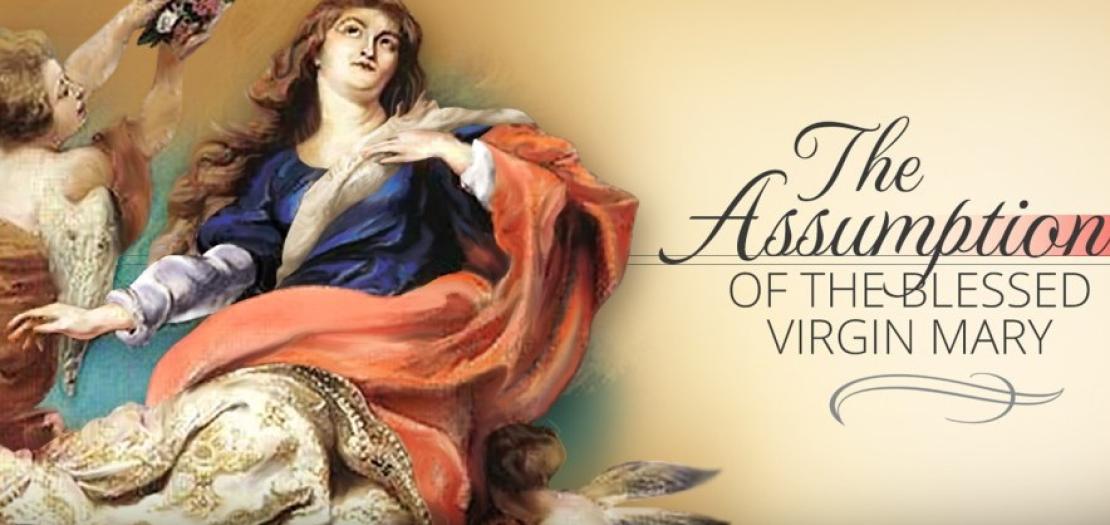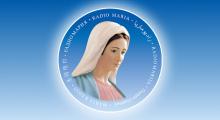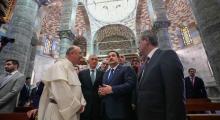Issued by the Catholic Center for Studies and Media - Jordan. Editor-in-chief Fr. Rif'at Bader - موقع أبونا abouna.org

The Virgin Mary, Mother of God, Mother of Life, and Queen of Peace, is the Daughter of the Father, Mother of the Son, and Spouse of the Holy Spirit. She is the source of all hope and consolation. Churches dedicate fasts, Prayers, and glorifications to honor her and proclaim the sanctity of her glory, for through her the Father's plan of salvation was fulfilled.
With the Mother of God and Mother of Light, the mystery of the infinite greatness of divine love is revealed and embodied in her repose and transition to the heavenly temple, body and soul, so that the work of divine redemption could be fully accomplished in her. According to Church tradition, the Virgin Mary was not subject to the law of remaining in the corruption of the grave, but rather ascended to the glory of the Heavenly Father, crowned by the angels as Queen on the heavenly throne.
On the Feast of the Dormition of the Theotokos and her Assumption into Heaven on August 15 of each year, Church Families gather in Prayer, contemplation, supplication, and veneration. The Feast has become an annual spiritual station awaited by believers in the region and the world, offering their praise and Prayers to their mother, the Mother of Jesus. Liturgical and traditional celebrations are held on this occasion, bringing joy, hope, and peace.
But what do Church traditions say about the Feast of the Dormition of the Theotokos? And what does the Liturgy of the Feast offer?
In the Orthodox Church, sources indicate that the Assumption of Mary, the Mother of God, is mentioned in many writings by Saint John the Evangelist, Saint Melito of Sardis, and Saint Dionysius the Areopagite, dating back to the fifth century AD. The Assumption of the Virgin Mary is also mentioned in Sermons of many Saints, such as Andrew of Crete, John of Damascus, Germanus of Constantinople, Theodore the Studite, and Gregory Palamas.
The essential elements of the Feast are expressed in the Liturgical service, which indicates that "The Theotokos died, and was buried. But she was not subject to corruption, for she ascended to heaven." This is stated in the Kathisma of the Orthros of the Feast: "In your birth, there is conception without sperm. And in your death (kimisis), incorruptible death," as well as in Ode 9 of the Orthros: "The birth from a Virgin and death have become the pledge of Life."
In this context, many Orthodox Prayers express the profound significance of the Feast of the Dormition of the Theotokos. The Vespers of the Feast explains in its content that the Virgin passed from life to life, from earth to heaven, and her ascent "was in glory in an effable way, on the arms of her Son and Lord."
In the Catholic Church, His Holiness Pope Pius XII defined the Feast of the Assumption of the Virgin Mary into Heaven as a dogma of faith and declared it in 1950, saying: "We pronounce, declare and define it to be a divinely revealed dogma that the immaculate Mother of God, the ever Virgin Mary, having completed the course of her earthly life, was assumed body and soul to heavenly glory."
According to sources, the Church considers "Mary to be the new Eve, alongside Christ, the new Adam. Mary was closely united with the new Adam in fighting the infernal enemy. The war faced by Mary, united with her Son, had to end with the glorification of her virginal body and the departure from this world, body and soul."
According to the Synaxarion of the Antiochian Maronite Church, the Virgin died at the hands of the Apostles at the age of approximately 72, and it is said that she was buried near the Garden of Olives where Jesus was in agony. The Synaxarion explains that Mary is Jesus' partner in the redemption of humanity. Like him, she experienced human nature without sin, and her death makes her more like humanity. Mary is also the Patron Saint of a good life and a good death, for she was not subjected, like her Son, to the corruption of death.
On the Feast of your Dormition, we ask you, O Mother of God, not to despise our supplications. We ask you to intercede with your Son, Jesus Christ, Lord of the universe and Redeemer of humanity, to save us from the death of sin and help us move to life, since you, O blessed one, gave birth to God.







